Russian Prime Minister Dmitry Medvedev has, in an interview on 7th of August, threatened that war is a great possibility if Georgia proceeds with its full membership submission with NATO.
This article was submitted by Nicolas George Taylor, a recent graduate in International Relations & Politics from Oxford Brookes University.
Russia has traditionally considered NATO expansion as a form of aggression, contributing to the historical assumption that Russian encirclement is subject to the narrative of the country’s current aggressive foreign policy.
In a televised interview with the state-owned program Kommersant daily, Medvedev who was President during the 2008 conflict dubbed the Russo-Georgian war, suggested that NATO should take immense precaution with its expansionary actions and warned that there still remains a “territorial conflict” which, if membership is granted by NATO, could be the trigger that “provokes a terrible conflict”.
This comes during the 10 year anniversary of the first conflict which claimed the lives of 224 civilians and displaced nearly 192,000 people.
The first conflict in 2008 was pronounced under the context of what scholars such as Roy Allison argue was a means of protecting Russian citizens in South Ossetia, yet under the guise of maintaining Russian hegemony in the ex-soviet state.
The threat comes just four years since the annexation of the Crimean peninsula which has been condemned by the international community and marked what scholars and commentators alike see as a new era of Russian aggressive foreign policy.
Foreign ministers from Poland, Latvia, Lithuania, Ukraine and Estonia have burst out in defence of the sovereign states intention to become a full member of the alliance. Latvia’s Foreign Minister Edgars Rinkēvičs went as far as defending Georgia and stated that:
“What happened in Georgia in 2008, and then in Ukraine, convinces us that we must do everything so that it does not happen again.”
In response to Medvedevs threat, Georgian President Girogi Margvelashvili remained firmly committed to progressing with NATO membership stating that “Georgia will not stop on its path to the EU and NATO.”
Georgia, which in 2006 undertook the Individual Partnership Action Plans (IPAP) deepening its relationship with the alliance, continues to seek full NATO membership, but considering the recent actions in 2014 and today with Russian military intervention in Syria, there is speculation that Georgia’s membership process could be slowed as a means of preventing unnecessary provocation.


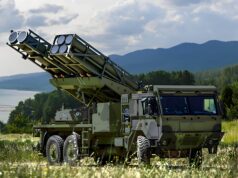

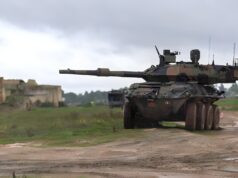
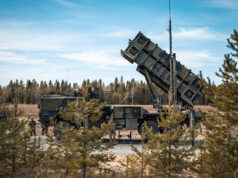
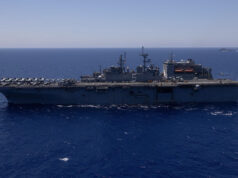
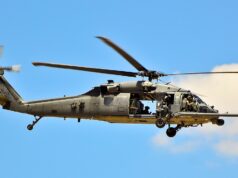
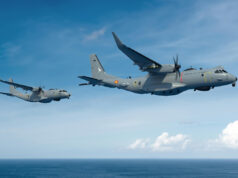


“Russian Prime Minister Dmitry Medvedev has, in an interview on 7th of August, threatened that war is a great possibility if Georgia proceeds with its full membership submission with NATO.”
It would have brought more to the table if the author had actually included that in 2014, NATO refused to allow Georgia to join:
NATO will not offer Georgia membership step, avoiding Russia clash
“NATO will stop short of approving a formal step to membership for Georgia at its summit in September, officials said on Wednesday, dodging a possible confrontation with Moscow over the alliance’s expansion to Russia’s neighbours.”
https://www.reuters.com/article/us-nato-enlargement/nato-will-not-offer-georgia-membership-step-avoiding-russia-clash-idUSKBN0F00IJ20140625
That stance has today been reinforced by Germany saying Nein Danke.
That probably won’t be enough to prevent a confrontation. NATO might say “no” to Georgia to avoid a conflict with Russia…
But with the EUs ‘expansion at all costs’ approach, it would certainly accept Georgia as a new member. This would displease Moscow because;
a) it sees EU membership as a sterling stone to NATO membership
b) since the Lisbon Treaty the EU is a military alliance too, where members have to come to each others aid.
Let’s not forget what happened with the Ukraine wanted to sign as association agreement with the EU…
Well, would not the Georgians be another country shaming the Germans in terms of defence spending?
The article from Reuters is from 2014 however I doubt anything has changed since.
LOL,
Another fine example of how Russia frightens the west into submission!
Hang on to that £39 Billion Brexit handshake, reduce our financial commitment to foreign aid and start boosting our own defences.
If we appear to be weak at some point the wolves will come looking!
100% correct Nigel, imagine what our armed forces would be like with a reasonable share of not giving the EU £37 billion bill and a share of £16 billion of our exuberant foreign aid bill.
I’d add high speed rail (HS2) to the list. A hugely expensive project to shave half an hour off journeys where business people can use the train journey time productively anyway e.g. catching up on email, preparing presentations, writing reports etc, (i.e. pretty much what they were doing in the offices anyway) as long as they have a seat, a laptop and a decent internet connection. Use some of the £55bn (with some estimating it will actually be over £80bn) of the planned HS2 budget to improve signalling and buy more rolling stock to increase frequency and capacity and possibly open up some more local lines to improve non-London regional connectivity and then use what would be a very significant residue for other stuff that we really need such as defence, health, social care, police, more funding for UK scientific R&D and innovation, etc. etc.
I’d scrap HS2 and build Hyperloop 1. High speed train travel is 60 years old and UK are only just starting. Its like installing a 3g network when we know 5g is coming. Being the first to build a Hyperloop line the UK then gets to lead a technology becoming the experts and then selling it to others. Anyway very off topic.
Julian – HS2 is not about saving minutes on journey times,its about increasing capacity.The two Mainlines from London to Scotland are maxxed out,you cant get an increase of trains on them despite signalling improvements etc.A new line has to be built – yes id agree that HS2 is working out eye wateringly expensive but maybe that’s due to the geography of the route and too much red tape.If you are going to the expense of a brand new Rail Route id guess you wont save much building it to a ‘classic ‘ spec rather than to High speed.
Mr Bell we the UK spend more than Russia on defence .. We spend more than the 37 billion Eu one off payment settlement . Last year we spent well over 37 billion
Yeah, but do we get our money’s worth? We always seem to shoot ourselves in the foot when it comes to value (quantity as well as quality) for money.
We can’t compete with the low wages and lack of healthy and safety that allows some nations to build complex warships cheaply.
Wow
A comment from Nigel not telling everyone how bad the F-35 is.
I’m in shock.
Trying to make people see sense Sole and not throw money down the drain.
Invest in Britain not US outdated and still non functioning products!
I’ve been advocating this for many months on here.
I found this post particularly interesting.
https://www.msn.com/en-gb/news/world/putin-makes-a-move-for-peace-through-force/ar-BBMni4o?ocid=spartandhp
I know but what’s the current alternative you propose that will save us money?
Tempest is decades away.
I know all about the F-35 problem I have posted about it in length on here.
But again what is the current alternative?
You are not really good at pretending to be British are you soleski lol!!!! dont listen to this idiot , he thinks the novichoks attack is a uk gov conspiracy lol!!!
Thankfully the UK has plenty of options comrade, and I’ve posted them on here in different threads many times before!
How about if several large NATO states airlift a brigade and fighter wing into Georgia? I rather doubt Russia will invade then. I exempt Germany from this action.
The geopolitics around the Russian near abroad is so very complex. Would it be better to let George into NATO ? I’m not sure, on one hand it may make the West look A bit weak if we don’t, on the other is Georgia where we really want to “make the line in the sand” when we know that Putin would have no choice but to step over it. The fact Georgia is the Russian near abroad and contains a population of Ethan Russians means he’s got to act hard or lose credibility.
Simple truth is the major players in NATO will not want to upset Russia over this ( Germany and US) and the others ( France and U.K ) would never want to risk a hot war over a strategic, military and economic non entity like Georgia ( and neither would I).
Georgia is also at extreme risk of destabilising and asymmetric forms of Warfare that NATO can’t combat and would therefore just make it look really weak or end up fracturing the alliance due to confusion and unclear aims.
NATO needs a line in the sand but it should be somewhere meanful to the West that we are willing and able to back up hard with no ambiguity possible.
Personally I think NATO make a mistake in going so far as some of the ex soviet Baltic states with populations of high percentages of ethinic Russians. It should have found a peace with Russia instread it left Russia feeling it was treated it as a defeated state and its near abroad as a prize to the victors.
I’ve changed positions on this numerous times, but now that it is obvious that Putin wants Cold War 2 I think NATO needs to take a hard line. However, in regard to Georgia itself joining NATO, we’ve got to ask ourselves what it will bring to the alliance; the country isn’t exactly a hot bed of stability. But the same could be said about Turkey, which already is a part of NATO; that’s one state that could go over to Russia at any time it seems or coversely could be a godsend when it comes to a full on war.
I disagree with your point concerning the Baltic states, and i’m pretty sure they do too. They are stable, and the fact that they have large ethnic Russian populations shouldn’t be of a concern to us, even if it is a concern to Putin. We can’t just let him have his own way because he might get upset.
Much more interesting would be if Ukraine were to become a member of NATO. That would crucify Putin, i.e. knowing that Kiev (considered by many Russians as the birthplace of modern Russia) had fallen into the hands of the dastardly West.
Consider this series of problems then.
1. If Georgia is allowed in what could NATO due to defend it? The country is situated on the Black Sea in range of multiple air bases and the Russian Black Sea Fleet. Then to make matters worse it is in the middle of a mountain range. The only NATO country bordering it is Turkey and cannot be relied upon. A defensive and logistical nightmare.
2. Further complicating this geographic problem is the mountains that would have helped defend the country are now a dagger at it’s throat. Instead of the forlorn hope of defending the mountain passes the Russians have lodgements in South Ossetia and Abkhazia. Therefore would be in Tbilisi before any NATO response could arrive.
3. This means the only retaliation would be all out war across NATO and Russia possibly involving Nukes. Somehow I don’t see Georgia as worth New York, Paris, London, Los Angeles, or Houston turning radioactive. All because the Georgians thought it was a good idea to get in a pissing contest with an angry bear.
4. Allowing the Baltic States to dictate the entire policy of NATO when they are inherently indefensible geographically, while also not able to muster one US Division worth of men between them is repugnant. This means you are putting the fate of the entire western world in the hands of Latvia not doing something stupid. So no they should never have been allowed into NATO. Expansion should have stopped at Poland and Romania as they are both large enough to field something resembling an army.
I agree with you completely on points 1 to 3. Georgia is a big risk in every way.
But I only partially agree with you on point 4:
1. The Baltic states should be doing way more to defend themselves. This is a given.
2. In general, though, I disagree about them being allowed into NATO. However, I would agree that the decision has its pros and cons:
– A major con is the already mentioned ethnic Russian populations in these countries; if a war were to happen, would these people simply go over to Russia’s side. I think they may, but only if the coutries had already been invaded.
3. If the Baltic states hadn’t become part of NATO, I doubt they would have lived a happy existence of nuetrality sitting between NATO and Russia: Russia at some point would have moved back in and retaken them. And then we would have had Russia right on our borders. Now though, although we we do have Russia on NATO’s borders, it is almost only in name. They are really more like a buffer zone, one that we have created, one which inevitably wouldn’t have been there if NATO hadn’t allowed them into the fold (as Russia would have already taken the areas over). In essence they are the fall guys for the major NATO countries.
Everything that man said. We are playing geopolitics between nuclear powers. The red lines need to be hard and in control of the key players. This means:
1) a nation with firmly enshrined western liberal democratic values or as close as makes us happy to not only fight for them but lose a good chunk of our nation in fire and death ( do we want to go to war and have our towns and cities targets because a nation we have no cultural links with decides to do something outside of our own values the forces putins hand). Moral ambiguity will fracture NATO.
2) is defensible against all forms of attack. Russia will use “war in peace “ to take the fight if possible, nations like Georgia and some of the Baltic states would be a high risk of this. ( sudden violence by or against an ethnic Russian group, a crack down, bit more violence, some political leaders asking for Russian peace keepers). NATO Cannot manage grey warfare without risk of fracture.
It may seem brutal but the small border states between the West and Russia are just not worth risk of complexity and increased risk of NATO fracturing or a hot war with Russia.
In regards to Turkey, strategically it’s very import but if it continues down the present path at some point the West is going to have to look at the potential of it being a risk to NATO.
NATO post the Soviet Union and eastern block only really works as an alliance because of shared values and understand. The more we dilute this the greater the risk of a terminal fracture.
NATO actually needs to consider what it is and how it can fight a grey war…..it can win a face to face slugging match.
When I wrote, ‘In general, though, I disagree about them being allowed into NATO’ I realise that this can be read in more than one way if taken out of context. By saying I disagee, I mean I disagree with Elliott and that the Baltic states were rightly let into NATO.
The position of Kaliningrad Oblast also complicates things, and that will play a major stategic role in any future war. That part of Russia and Belarus (whch would almost certainly come down on the side of Russia in a war) all but cust off the Baltic states from the rest of Europe and NATO.
Eventually, like the EU will, I feel NATO will implode. It’s inevitable.
Russia under Putin is a huge problem, but I agree Georgia is regretably too distant & remote to cover with the nato guarantee & Turkey under Erdogan is a wild card. The way Nato has mostly raced to the bottom in divesting itself of military assets since the end of the Cold War(mk1?) has done nothing to temper Putins Imperial pretensions as seen in his attacks on Ukraine & Georgia. The EUs own imperial delusions fueled his paranoia that Nato was trying to invade Russias sphere. Trump seems to be out of the Putin school for leadership, but I’ll never trust any politician who consistantly lies, bullies & muddys facts, let alone cosy up to his countrys main opponent.
One thing’s for certain: Now is not the time to be militarily or politically weak.
Well said frank, especially your last sentence!